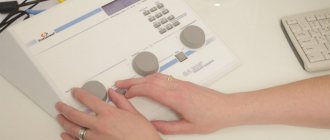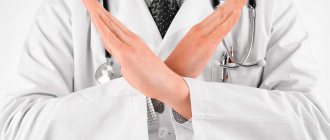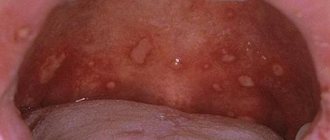Depression is a very common disease of the 21st century that affects all people, regardless of gender and age. This disease is very serious and requires the immediate intervention of specialized doctors. Due to the fact that this disease is very common these days, there is a huge variety of techniques and methods for treating this disease.
The Salvation clinic employs highly qualified specialists who select an individual approach to each patient. For each person suffering from depression, the clinic’s specialists will select a variety of approaches and methods of treatment.
Specialists prescribe treatment for patients depending on the degree of its complexity and the cause of its occurrence.
The methods provided for treating depression are varied and highly effective. However, the most common treatment for this type of psychological disorder is antidepressants. The main effect of these drugs is that they have a huge impact on the human body and its mental state.
Antidepressants in Russia
In our country there is a distorted impression about depression; most people believe that depression is not a disease and will go away on its own.
Little attention is paid to the treatment of depression in Russia, and sometimes it is simply impossible to find a qualified psychologist or psychotherapist. Many people are afraid to turn to specialists with depression, fearing that others will misunderstand them, and sometimes a depressive state acts as a means of standing out from the gray mass. This attitude towards depression is provoked by doctors who are confident that depression is a character trait that cannot be gotten rid of. With the right approach, you can cure depression and forget about its existence forever.
Treatment without antidepressants
People are afraid of psychotropic drugs due to side effects or their own prejudices, so they avoid going to a specialist. But in fact, most cases of depressive disorder can be treated without pharmacotherapy. Tablets are only a means for a faster and more pronounced effect, as well as support for psychotherapy. Most patients are able to cope without them if they contact a competent specialist in a timely manner.
Basis of depression therapy:
- Psychotherapeutic sessions.
- Sleep hygiene.
- Relaxation practices (Jacobson method or progressive muscle relaxation, breathing exercises).
- Maintaining a daily routine.
- Physical exercise.
If the patient does not feel the strength to exercise and follow the recommendations, he needs medication support.
Are antidepressants dangerous?
There is almost as much fear around antidepressants as there is around antibiotics. But if everyone has already become accustomed to the latter, the former still causes doubts and anxiety among patients. But in vain.
Modern antidepressants act quite mildly.
The drugs allow the body to replenish the lack of neurotransmitters so that the person begins to feel good again.
When you start taking antidepressants, the body adapts. During the first 2-3 weeks, side effects may occur. Because of this, they often cancel them on their own and tell each other lies about the deterioration of their condition. But you only need to listen to your doctor and consult with him.
It is important to choose the right dosage: it is increased gradually. Therefore, at the beginning of use there may be no effect. The doctor adjusts the dosage. As a rule, specialists always remain in touch with the patient. If you have any doubts about your health, you should tell your doctor. By following these rules, antidepressants will only bring you good health and speed up recovery.
Antidepressants and addiction: myth or truth
Dependence on antidepressants is only partly a myth. Some drugs previously used to treat depression may be addictive. But they have not been used for a long time.
The latest generation of antidepressants are not addictive.
Some patients are forced to take antidepressants for several years. This is not due to addiction, but to a serious illness. If depression is seen at an early stage, long-term pharmacotherapy is not required for most patients.
Gradual withdrawal of antidepressants is also not associated with the development of dependence. This is necessary for the smooth adaptation of the body and the patient himself to life without drugs.
Self-medication with antidepressants is dangerous
There are many patients who do not turn to specialists, but prescribe treatment for themselves. Self-medication with antidepressants can be life-threatening, since antidepressants are potent substances that should be taken strictly under the guidance of a doctor.
Another misconception is that you can stop taking antidepressants at any time. This misconception can lead to undesirable consequences. If you stop taking antidepressants at the peak of treatment, depression may return and begin again with a new force or become even worse. Improper use of antidepressants may cause side effects such as nausea, vomiting, and dizziness.
How to decide whether to take an antidepressant or not?
I always ask the patient at the first appointment if he wants to take antidepressants.
If he is convinced that he would rather do without it, I use only cognitive therapy, and this is usually successful. However, if a patient persists in therapy for six to ten weeks without much improvement, I sometimes suggest adding an antidepressant to the treatment - in some cases this increases the effectiveness of psychotherapy. If the patient at the first appointment is sure that he wants to take antidepressants, I immediately use a combination of antidepressants and psychotherapy. In my experience, a drug-only approach has not been effective.
It may seem unscientific to prescribe medications or not based on the patient's preferences, and of course there are exceptional cases where I feel I must recommend a treatment method that differs from the patient's wishes. But in most cases, I have found that patients respond better to the approach they feel most comfortable with.
How do antidepressants work?
More recently, there was a boom in the worldwide craze for antidepressants, after which many people finally realized that the effectiveness of antidepressants is only 50%. This is due to the fact that the drug for depression is not suitable for all people; it largely depends on the person’s genotype.
Antidepressants only affect the symptoms of the disease, not the cause of the disease. Medicines for depression only return a person’s joy and desire to live, good mood, and help him adapt to society. After artificial recovery from depression with the help of antidepressants, it is necessary to undergo a course of treatment with a psychotherapist to identify and eliminate the cause of depression.
Chemistry of the process
There is no definitive answer to the question “what causes depression,” and it is unlikely that one will appear soon. There are several theories about the occurrence of depression, and most of them are somehow related to neurotransmitters - substances that transmit a signal from one nerve cell to other nerve or muscle cells. The most popular hypothesis is serotonin. It says that in patients with depression, either the production of serotonin itself or its perception is impaired. Most anti-depression medications are designed to correct this problem. Some of the newest and most commonly used are selective serotonin reuptake inhibitors (SSRIs). They trap serotonin molecules in the gap between two nerve cells, resulting in the effect of the neurotransmitter lasting longer and stronger. SSRIs should not interfere with the functioning of other neurotransmitters.
Previous generations of drugs have more side effects. These are, for example, monoamine oxidase (MAO) inhibitors, an enzyme that destroys serotonin and dopamine. Since these two neurotransmitters act not only on mood, but also on many other processes in the body (for example, serotonin increases intestinal motility and also constricts blood vessels, due to which it controls erection to some extent), MAO inhibitors can have a wide variety of side effects. Therefore, they are used much less frequently than SSRIs, and even then, if possible, in the clinic, under the constant supervision of a doctor.
There is another opinion regarding the causes of depression. It is known that with depression, practically no new connections are formed between nerve cells. This is probably the cause of the disease. Perhaps serotonin does not affect mood at all, but only helps trigger increased formation of connections between neurons. If this is so, then it becomes clear why most antidepressants do not improve your mood immediately after the first dose (like food and alcohol), but only after two weeks, and also why SSRIs sometimes help with anxiety disorders, which are not particularly related to serotonin.
Prevention of depression
The appearance and development of depression depends on the person himself, on his lifestyle, worldview, and relationships with the outside world. And if human activity is associated with stress and mental tension, then it is extremely important to prevent the occurrence of depression. Prevention is primarily a healthy lifestyle, proper sleep and rest.
Sleep should be from 21 o'clock to 5 o'clock in the morning - this is considered the best time for healthy sleep. Meals must be balanced, three times a day at the same time. It is important that 70% of food should be consumed before 15 hours.
To avoid depression, you also need to lead an active lifestyle, include in your regimen, if not morning jogging, then at least walking and visiting the pool.
Who can take antidepressants?
Most people, but certainly under professional medical supervision. For example, special precautions are indicated if you have a history of seizures, heart disease, liver disease, kidney disease, high blood pressure, or certain other problems. If you are taking medications other than an antidepressant, you should take special precautions.
If you take an antidepressant correctly, it will be harmless and can even save your life. But do not try to change the dosage yourself or take the medicine on your own. Medical supervision is required.
What should I do if my antidepressant doesn't work?
I have seen many patients who never responded adequately to one or more antidepressants. In fact, most of the patients at my Philadelphia clinic are referred there after "having failed various antidepressant medications and psychotherapies." In most cases, we were ultimately able to achieve excellent results using cognitive therapy in combination with medications that the patient had not yet tried. It's important to keep trying until you get better. Patients often feel like giving up, but persistence always pays off.
Perhaps the worst symptom of depression is a feeling of hopelessness. It leads to suicide attempts, because patients are sure that their situation will never improve. They think that it has always been this way and that their feelings of worthlessness and despair will last forever. Patients can be so convincing of their hopelessness that after a while even their doctors and families may begin to believe them.
When I first started working, I often felt tempted to turn down particularly difficult patients. But a colleague I trust encouraged me never to give in to the belief that a patient might be hopeless. This policy has paid off many times over the course of his career. No matter what type of treatment you receive, faith and persistence can be the key to success.
Advertising
How do you know if an antidepressant is working?
During treatment, take a depression test once or twice a week. The test will show you if there are improvements and how big they are.
If you do not get better or if your condition worsens, your score will not decrease. But if the result improves steadily, this indicates that the drug is likely working.
Unfortunately, most doctors do not require their patients to take a mood test like this between therapy sessions. Instead, they rely on their own clinical experience to evaluate the effectiveness of treatment. This is a rather unfortunate approach: studies have shown that doctors often make mistakes when trying to determine how their patients are doing.
Causes and symptoms
The reasons for the development of this disease can be regular stress, psychological trauma, various unpleasant situations and events, problems in relationships with loved ones, the opposite sex, psychological violence in childhood or adulthood. However, such a deviation in the psycho-emotional state is not only a consequence of injuries, it is also various changes at the physical level. In particular, patients have a lack of vitamin D, iron and some other microelements and biologically active substances.
In addition, the development of the disease is largely influenced by hormonal disorders and diseases of the endocrine system. Quite rarely, the disorder occurs as a side effect of taking medications, but this is usually prescribed in the instructions. Vitamin D deficiency is associated with a lack of sun; in the fall and spring, many people experience exacerbation of mental disorders.
Doctor, I'm depressed. What should I do?
First of all, do not go to the pharmacy yourself and do not ask the pharmacist for medicine.
Neither you nor the pharmacy worker are a psychotherapist, which means you will not be able to make a diagnosis and draw conclusions about which antidepressant you need and according to which regimen to take it. Antidepressants are not nutritional supplements, and the psyche is a bad field for experimentation: rash actions can cause irreparable harm to it.
If you suspect you are depressed, make an appointment with a psychiatrist or psychotherapist. Of course, there are still people who are suspicious of these doctors. But the brain is an organ of your body just like any other, and therefore, if it gets sick, it needs to be treated.
How long to take an antidepressant if it doesn't work?
On average, a probationary period of four to five weeks should be sufficient. If you do not experience a clear and noticeable improvement in your mood, you may need to change your medication. However, it is important that the dosage is adjusted correctly during this time, because if it is too high or too low, the drug may not be effective.
One of the most common mistakes a doctor can make is keeping you on an antidepressant for many months (or even years) without clear evidence that it is helping you. This seems completely pointless to me!
However, I have seen many people with severe depression who report that they have been taking the same antidepressant for many years without experiencing any positive results. When I asked why they took the medicine for so long, they usually answered that their doctor recommended it because of a “chemical imbalance.”
Leave me alone, old lady, I'm depressed
"I am depressed!" - we habitually exclaim when something spoils our mood. This word in everyday conversations has long become synonymous with the concepts of “sadness”, “longing”, “sorrow”... However, depression is far from an ordinary phenomenon. This is a diagnosis that can only be made by a specialist - a psychiatrist or psychotherapist.
Depression is a mental disorder that includes three factors:
- low mood, anhedonia (inability to enjoy);
- impaired thinking (obsession with the cause of depression, negative judgments about all things, suicidal thoughts);
- physical inhibition (in some cases, up to a complete refusal to move - the person lies in his bed without getting up).
A person with depression is not able to adequately respond to support and reassuring phrases - he will simply let them pass by. Words: “Pull yourself together! Stop bitching! Get up and take action! - will not be beneficial, but will cause harm.
Do you think the patient behaves this way on purpose, to spite someone? In fact, he is well aware that something wrong is happening to him, but he cannot do anything about it. His psyche is unhealthy and needs help. But this help should come from a competent specialist. Home-grown “psychologists” will only aggravate the situation, and depression will enter an irreversible stage.
Does depression go away on its own? Alas, very rarely. Even if it seems that the disease has receded, the affected psyche will present an unpleasant surprise more than once.











